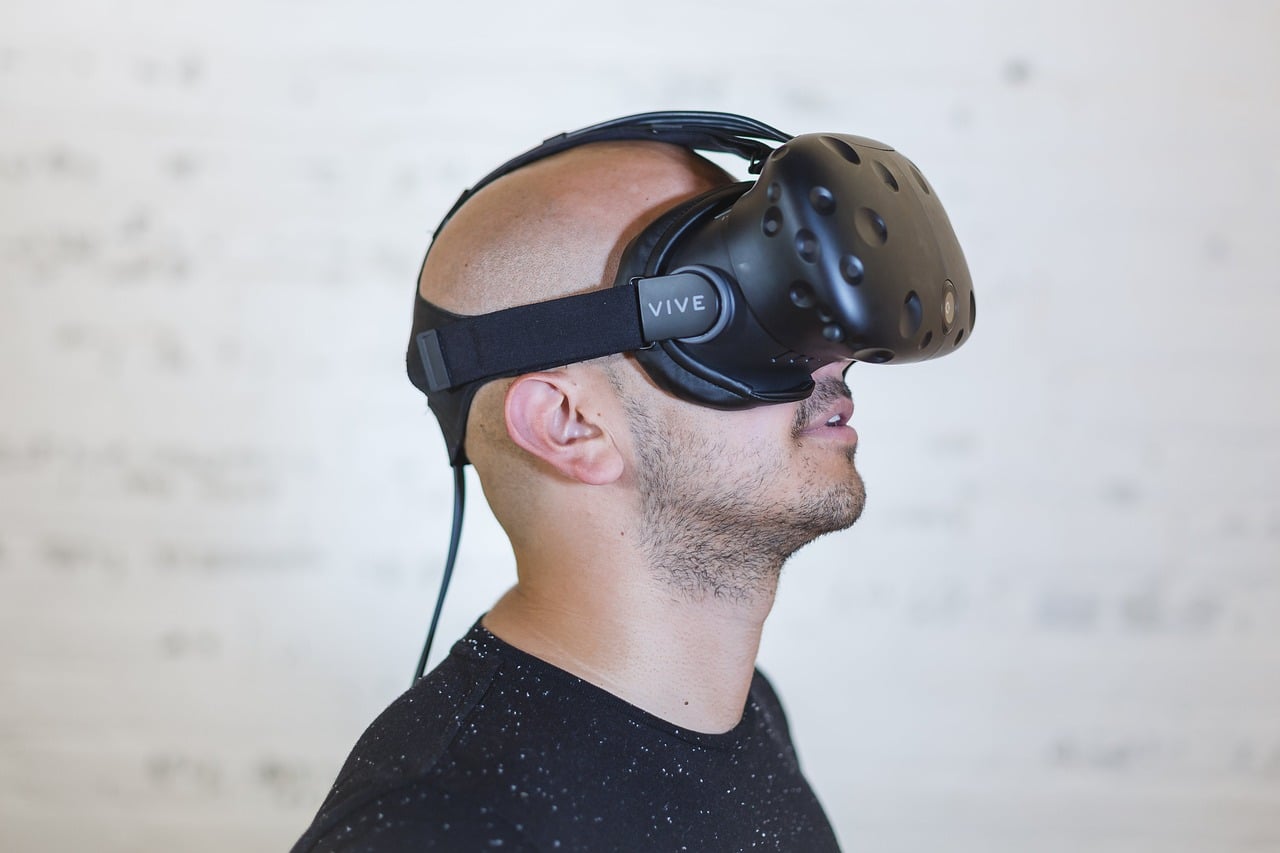It wasn’t that long ago that smartphones were an emergent technology, yet today, they’ve become almost fundamental to our way of life. The same can be said for streaming TV, cloud computing and online shopping. New disruptive technologies like big data, blockchain, drones, image recognition and 3D printing are hot topics. However, for Taiwanese consumer electronics brand HTC, the big catch is mixed reality – a blending of the interaction between the physical and digital worlds, which is often considered synonymous with Augmented Reality (AR) but can also take on elements (or make use) of Virtual Reality (VR). Mixed reality is the focus of HTC in the development and upcoming release of their updated VR headset. Hoping to disrupt the entertainment and gaming markets, this premium PC system comes with high-end VR, incorporating both active participation in a chosen reality and room-scale tracking that allows the user to move around and view both imagined and real objects in the same frame.
Investment in Disruptive Technology Innovation Grows
Disruptive technology is important. It doesn’t seem that long ago that Microsoft had an unshakeable grip on the home computing market. That was until Apples’ smartphone development and integration with its macOS changed everything, including Microsoft’s own direction when it comes to smartphones and PCs. Naturally, any potential technology game-changer makes its innovation and development big business. This is why systems such as the Qmarkets Q360 suite of intelligent software solutions have become essential for not just encouraging but also managing innovation. The likes of Lufthansa and Ford use the Q-ideate platform to enable employee engagement, driving new ideas forward that are key to developing disruptive tech features and their route to implementation.
Q2 hedge fund letters, conference, scoops etc
However, innovation shouldn’t be confused with strategy, which is a plan of known variables. Instead, innovation is concerned with managing the unknown and adapting to it. Former Google CEO Eric Schmidt introduced the 70-20-10 rule for allocating resources by dividing them up into “core”, “adjacent” and “innovative/transformational stuff”. This allows for the streamlining of innovation and the swift adoption and introduction to the market of new technologies.
AR/VR Growth Projections
Innovating and distributing disruptive tech is the currency of the (literal and actual) future, from artificial intelligence to blockchain and cryptocurrency. HTC understands that being part of tech development early is important, not just today but in the medium to long term too. Research group IDC estimates that by 2023, AR/VR headset sales will reach a combined 68 million. To put this figure in perspective, the total worldwide sales figure for the Xbox One console is 43 million and the Nintendo Switch has so far sold 30 million units, according to Statista.
This means that the market is not only huge, but it’s growing one too. Already, global sales account for $160 billion in revenue of AR/VR products and improved headsets from the likes of Oculus, Microsoft and HTC’s Cosmos, powered by 5G and artificial intelligence (and an 88% better screen resolution than its previous version) are helping to fuel this growth. HTC Europe Chief Graham Wheeler thinks this interest will continue: “The growth curve is brilliant for us. With governments, venture capitals and companies coming to the forefront of investing in the content, the [mixed reality] market has a bright future down the line”.
AR/VR Already Part of Next-Generation Culture
Most consumers’ first introduction to mixed reality started with the phenomenon of Pokémon Go, but consumer tech has now gone well beyond it. Google Maps has integrated AR tech, Snapchat’s AR features have become ubiquitous for selfies, and Apple’s ARKit developer tool has enabled a number of other apps to incorporate AR features into them.
There are games like Dance Reality, Holo and Time Machines as well as learning tools like Froggipedia, Civilisations AR and Mondly that all utilize the power of AR. It’s no wonder that HTC sees mixed reality and AR/VR overlap as becoming the next technology that everyone uses every day, just like smartphones are today.
Banking on AR/VR Success
If the mixed reality market truly lifts off, as projections expect it to, then the help of companies like Apple, Google and Facebook (who are among the biggest investors in AR/VR technology) means HTC could well reap the rewards. With a share of the $5.4 billion of AR market investment alone, alongside huge Chinese investment, there are a lot of companies quite literally banking on its success.
The journey from disruption to widespread adoption is becoming shorter. Progressive technologies make it easier for products like VR headsets to find their demographic. HTC reads the market as being primed and ready for a mixed reality explosion of apps, systems, platforms and technology geared towards integrating both digital and real-world features which perfectly encapsulate their VR headset capabilities. Future sales projections are overwhelmingly positive, and the rapid integration of gaming, learning and informational apps with mixed reality have brought it closer to the mainstream. HTC might just be on the right path.





